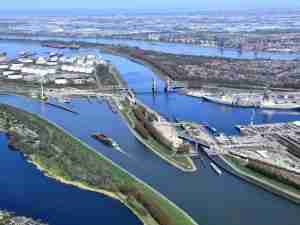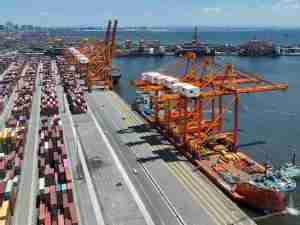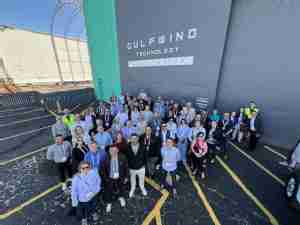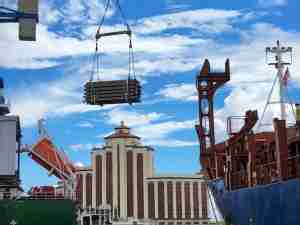Rotterdam Port is a major transit point for commodities including oil and grains and for manufactured goods, as well as the biggest port for iron ore used by the German blast furnaces in the Ruhr region, which supply the German auto industry.
The port eked out a 0.8 percent rise in cargo volumes for 2011 to 433 million tonnes, a new record, although growth was below the forecast 2 to 3 percent that the port had set earlier in the year.
"Throughput in the port is strongly connected to developments in relevant world trade and German industrial production," Chief Executive Hans Smits said in a statement.
"We expect to maintain the current level next year. In the second half of the year, I expect that we will have put the European confidence crisis behind us," he added.
He said the port would continue to invest in expansion, including new container and tank terminals, because it expected reasonable growth from 2013.
Throughput of crude oil fell 8 percent in 2011 to a low of 92 million tonnes, reflecting high prices and low refinery margins, which encouraged refiners to undertake major repairs. Throughput of oil products dropped 6 percent.
Throughput of iron ore and scrap fell 6 percent in 2011 following the closure of some blast furnaces in Germany, France and Belgium and is expected to decline even further next year.
Coal throughput rose 12 percent following Germany's decision to phase out nuclear power plants, and the amount expected to remain stable in 2012, the port said.
Throughput of grain, oil seeds and derivatives jumped 18 percent as a disappointing European crop and Russian export ban in the first six months of the year led to more imports by sea.
Container handling rose by 10 percent in 2011 on increased trade with Asia.
Rotterdam port is undergoing a 3 billion euro ($3.9 billion)land reclamation project, Maasvlakte 2, to expand its area by 20 percent to 12,000 hectares from 10,000 hectares currently. (Reuters)









